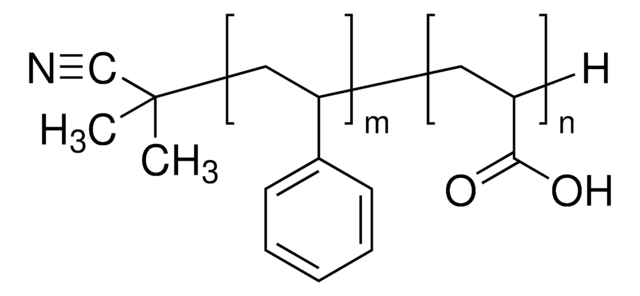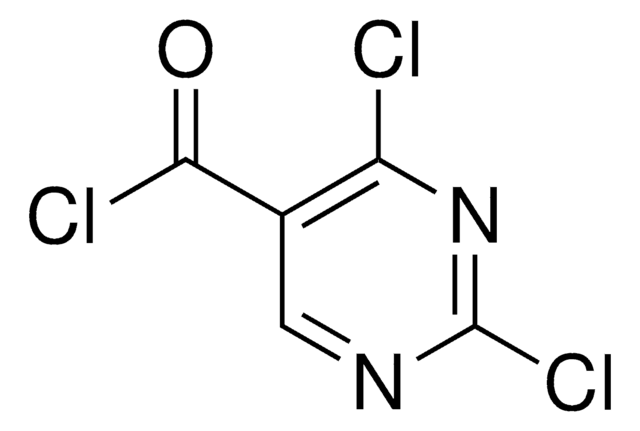735892
Poly(styrene)-block-poly(acrylic acid), azide terminated
average Mn 8,700
Synonym(s):
PS-b-PAA, Polystyrene-polyacrylic acid polymersome forming polymer
About This Item
Recommended Products
form
solid
mol wt
Mn 1,600-1,950 (poly(acrylic acid))
Mn 6,500-7,000 (polystyrene)
Mn 8,100-9,100
average Mn 8,700
mp
192-197 °C
Mw/Mn
1.2
Looking for similar products? Visit Product Comparison Guide
Storage Class Code
11 - Combustible Solids
WGK
WGK 3
Flash Point(F)
Not applicable
Flash Point(C)
Not applicable
Certificates of Analysis (COA)
Search for Certificates of Analysis (COA) by entering the products Lot/Batch Number. Lot and Batch Numbers can be found on a product’s label following the words ‘Lot’ or ‘Batch’.
Already Own This Product?
Find documentation for the products that you have recently purchased in the Document Library.
Articles
The development of drugs that target specific locations within the human body remains one of the greatest challenges in biomedicine today.
Professor Robert K. Prud’homme introduces flash nanoprecipitation (FNP) for nanoparticle fabrication, which is a scalable, rapid mixing process for nanoparticle formulations.
Professor Robert K. Prud’homme introduces flash nanoprecipitation (FNP) for nanoparticle fabrication, which is a scalable, rapid mixing process for nanoparticle formulations.
Professor Robert K. Prud’homme introduces flash nanoprecipitation (FNP) for nanoparticle fabrication, which is a scalable, rapid mixing process for nanoparticle formulations.
Our team of scientists has experience in all areas of research including Life Science, Material Science, Chemical Synthesis, Chromatography, Analytical and many others.
Contact Technical Service








